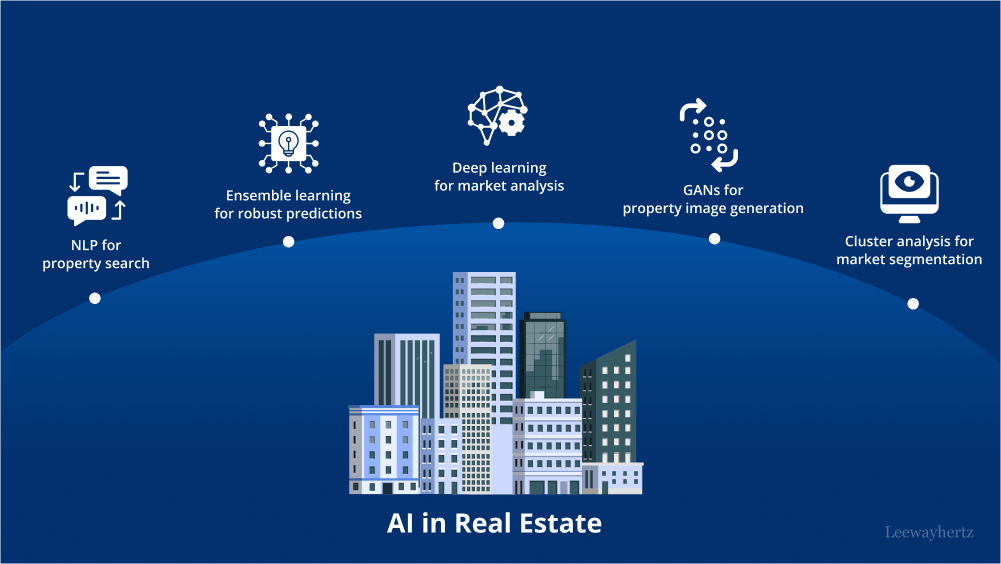Artificial Intelligence (AI) is revolutionizing the real estate industry, bringing greater efficiency, smarter decision-making, and improved customer experiences. As real estate becomes more data-driven and technology-oriented, understanding the benefits of AI is essential for professionals, investors, and homebuyers alike.
How is AI Used in Real Estate?
AI in real estate involves using machine learning algorithms, predictive analytics, and intelligent automation to manage property data, streamline operations, and personalize services. From property search to investment forecasting, AI is reshaping the way the industry operates.
Key Benefits of AI in Real Estate
Smarter Property Search and Recommendations
AI-powered platforms can analyze user preferences, location data, and browsing behavior to suggest properties that match individual needs. This personalized search experience saves time and increases the chances of finding the right property faster.
Predictive Market Analysis
AI algorithms can evaluate historical data, market trends, and economic indicators to forecast property values and rental yields. This helps investors and agents make more informed decisions and identify emerging opportunities in the market.
Efficient Property Management
AI-powered tools automate routine tasks such as rent collection, maintenance requests, and tenant communications. Smart property management systems can monitor building conditions in real-time and predict potential issues before they occur.
Virtual Assistants and Chatbots
AI chatbots enhance customer service by answering queries 24/7, scheduling property visits, and guiding users through the buying or renting process. This improves client engagement while reducing the workload for agents and brokers.
Risk Assessment and Fraud Detection
AI can assess the risk profile of buyers and tenants by analyzing financial history, credit scores, and behavioral data. It also detects anomalies or suspicious transactions, helping prevent fraud and ensuring compliance with regulations.
Enhanced Real Estate Marketing
AI-driven marketing tools create targeted campaigns based on audience behavior and preferences. These tools optimize ad placements, content, and timing, improving conversion rates and maximizing return on investment (ROI).
Smart Building and IoT Integration
AI is a key component of smart buildings, where it manages energy usage, lighting, security, and other systems. This leads to cost savings, better resource management, and increased comfort for occupants.
Considerations for Implementing AI in Real Estate
While AI offers significant advantages, it must be integrated thoughtfully:
- Data Privacy: Ensure all personal and financial data is handled securely and complies with legal standards.
- Human Oversight: Use AI to support—not replace—real estate professionals’ expertise.
- Transparency: Be clear with clients about how AI tools are used in the decision-making process.
Conclusion
AI is transforming the real estate industry by making processes more efficient, insights more accurate, and experiences more personalized. From predictive analytics to intelligent automation, the benefits of AI empower real estate professionals to better serve clients and adapt to a rapidly evolving market. As adoption grows, the key will be balancing innovation with responsibility to ensure long-term success.







Leave feedback about this